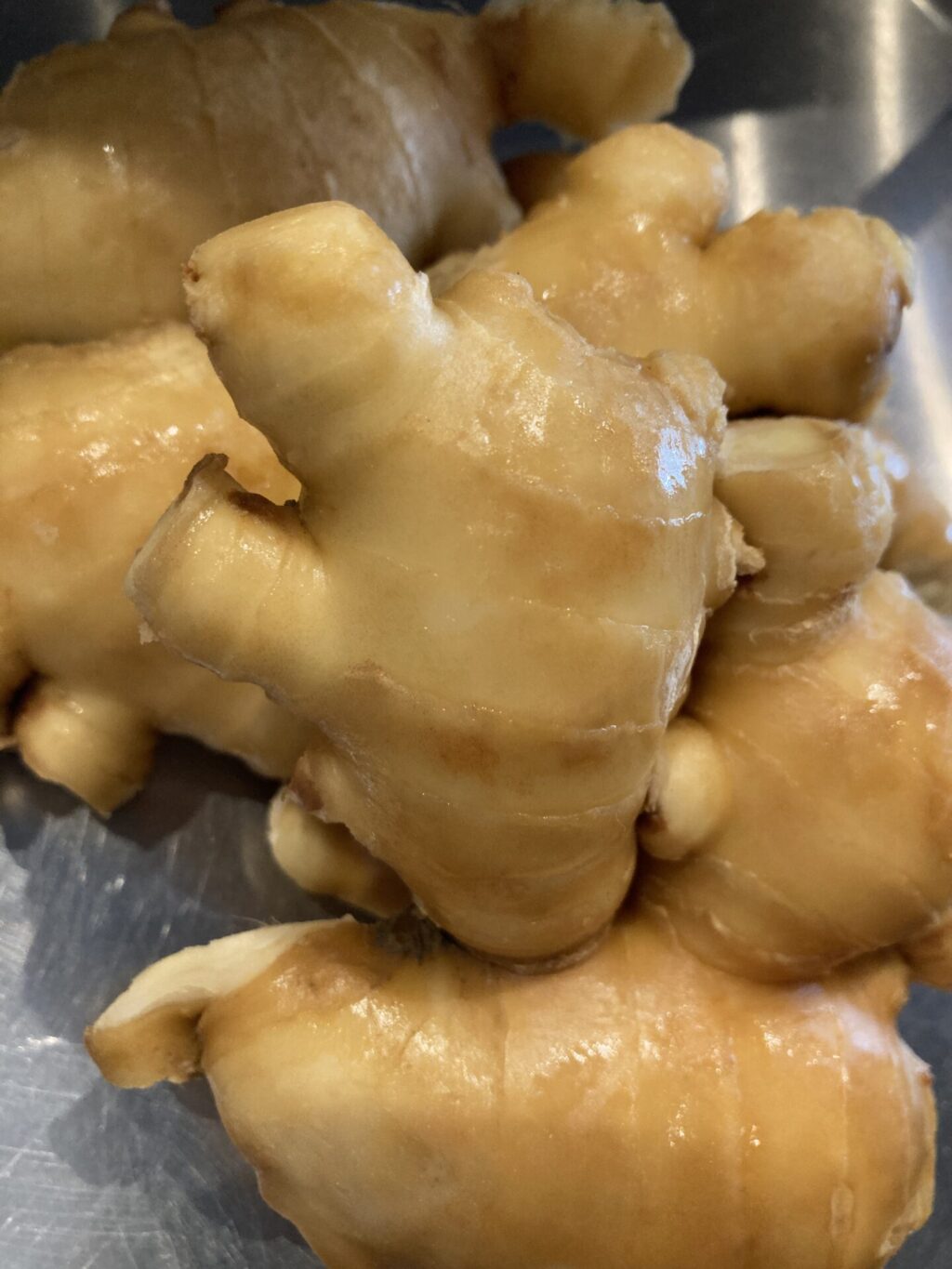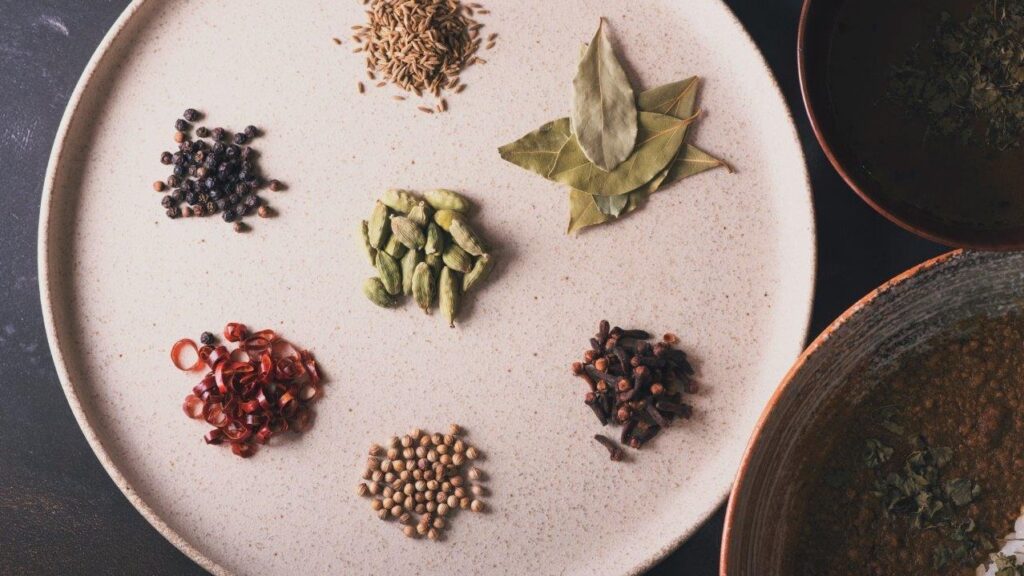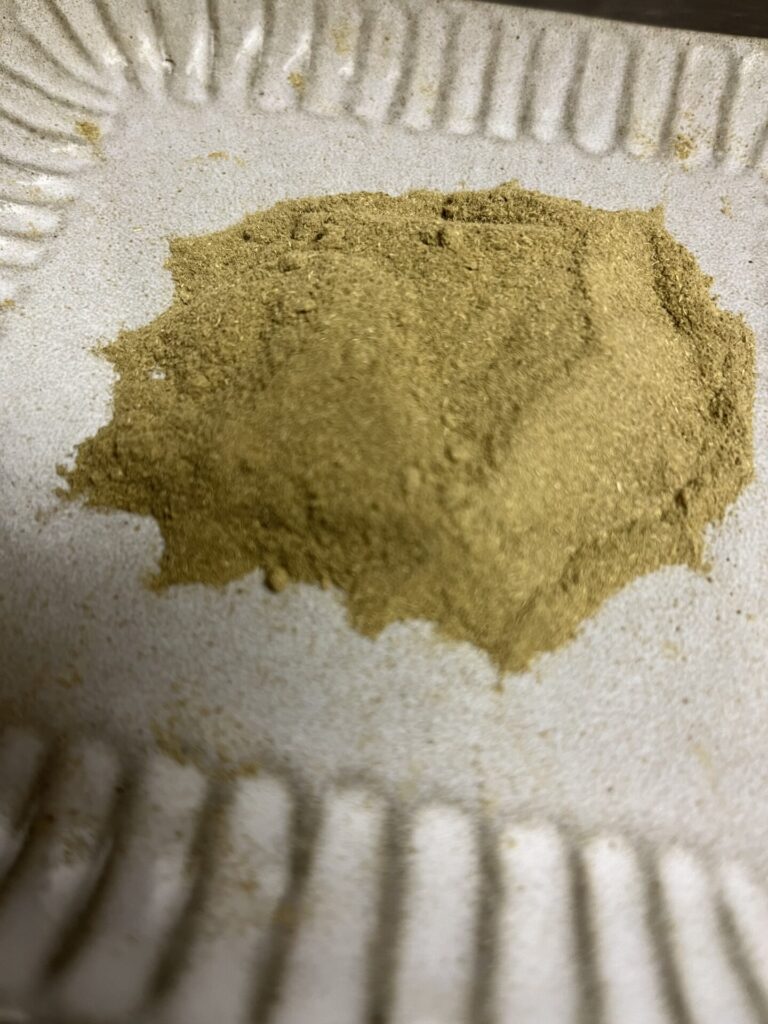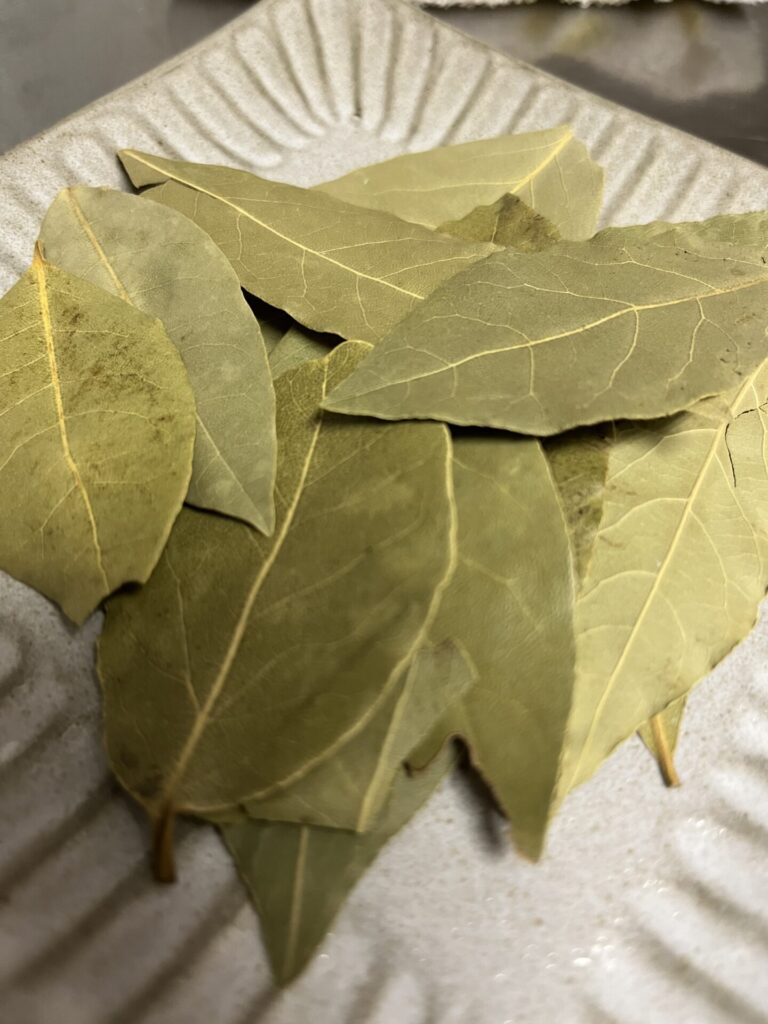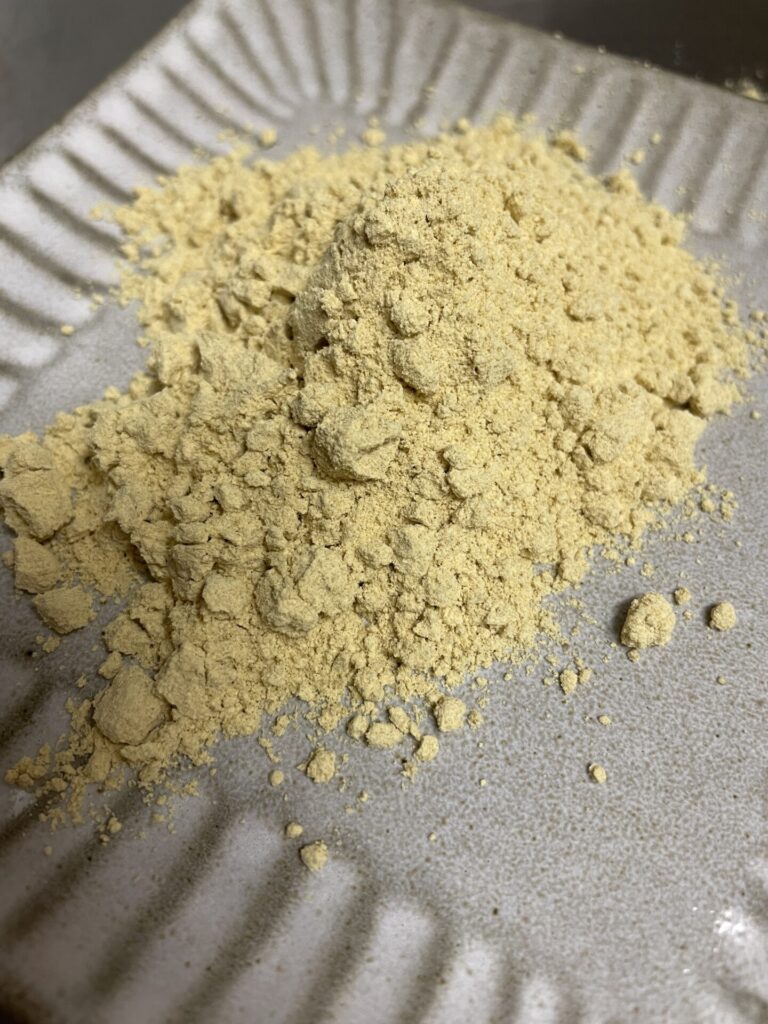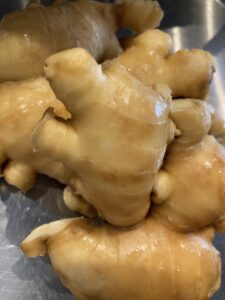 Fresh ginger has a cool, woody aroma mixed with a warm, citrus-like flavor.
Fresh ginger has a cool, woody aroma mixed with a warm, citrus-like flavor.
Dried ginger has a weaker aroma than fresh, but when it is powdered, for example, it has a lemon-like aroma and a warm, peppery flavor.
History of Ginger
Ginger has a very long history and has been cultivated in southern China and India for over 3,000 years. In the past, it was used as a medicine in China, India, Europe, and Japan.
It was even described in ancient Chinese medical texts, and half of all Chinese herbal medicine prescriptions contained ginger.
It was not until the Middle Ages that ginger began to be used in foods.
It was introduced to Japan from China and is also said to be one of the first spices introduced to Europe from the Asian region.
In Asia, ginger is mostly used fresh except for dried spice mixes, but in the Middle East and Europe, the use of dried ginger was more developed than fresh ones because ginger carried by caravans was dried since ancient times.
Herbal Benefits of Ginger
Ginger has a variety of medicinal benefits, some of which are introduced below.
(1) Promotes blood circulation
Gingerol, a pungent ingredient found in abundance in fresh ginger, improves blood circulation and temporarily stimulates sweating. Therefore, it is expected to be effective in preventing summer swelling and releasing heat from the body.
(2) Improvement of coldness
When fresh ginger is heated, some of the gingerol is converted into gingerol, which has a core warming effect on the body.
It is also known that dried ginger contains less gingerol and more gingerone, which is highly effective in warming the body.
It is used as a herbal medicine with “warming” properties to warm the five organs and cause sweating, especially in the abdomen. However, care should be taken not to take too much. Pregnant women, for example, should be especially careful because it can dry out the body.
(iii) Sterilizing effect
Zingerone and gingerol have been shown to have bactericidal effects.
It is said to be effective in preventing food poisoning and eradicating bacteria that cause bronchitis and pneumonia, as well as filariasis and parasites. Incidentally, the reason why sushi comes with gari (pickled ginger) is to prevent food poisoning by eating ginger together with raw fish, which has a sterilizing effect.
(4) It regulates the gastrointestinal tract.
Ginger improves blood circulation in the gastrointestinal tract, thereby increasing its function and enhancing food digestion and absorption.
Furthermore, the enzyme zingibei breaks down proteins, thereby reducing the burden on the gastrointestinal tract. In addition, gingerone and gingerol are said to stimulate the internal organs themselves, thereby increasing appetite.
Ginger is a spice with many wonderful herbal benefits, but keep in mind that depending on the benefits you want to obtain, it may be better to consume ginger in its fresh form or dried form.
How to cook and store ginger, etc.
Fresh ginger is used in spicy fish dishes in most parts of Asia.
In China, it is mainly ground, finely chopped, or sliced to remove odors from fish and meat.
It is cooked with the skin on and removed before eating to bring out the strongest aroma possible. In Japan, fresh ginger has a variety of uses. The main use is, as in China, to remove the smell of fish. Also, freshly grated ginger and its juice can be used as a dipping sauce for tempura or as a dressing.
In India, garlic and ginger paste is added to oil and stir-fried to make a base for cooking.
Wooooo… Dried ginger is used in stimulating spice mixes in Asia and is often used in spice blends in the West. It is also used in jams because of its excellent compatibility with fruits.
Finally.
The ginger introduced in this article. How did you like it? Fresh ginger and dried ginger have completely different ingredients, and each has different medicinal effects!
I think some of you may be surprised. If you have a weak stomach or suffer from coldness, please try different methods!
In the next issue, we will introduce garlic, which you are all familiar with as well as ginger.
Please look forward to it.


